Filter by
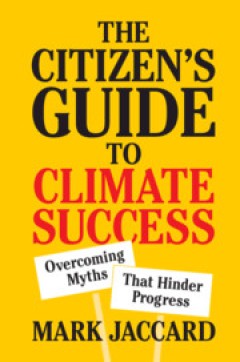
The citizen's guide to climate success : overcoming myths that hinder progress
Sometimes solving climate change seems impossibly complex, and it is hard to know what changes we all can and should make to help. This book offers hope. Drawing on the latest research, Mark Jaccard shows us how to recognize the absolutely essential actions (decarbonizing electricity and transport) and policies (regulations that phase out coal plants and gasoline vehicles, carbon tariffs). Rath…
- Edition
- -
- ISBN/ISSN
- 9781108783453
- Collation
- xiv, 292 p. : ill
- Series Title
- -
- Call Number
- 363.73874 JAC t
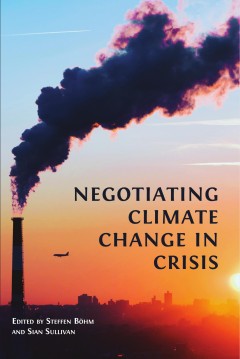
Negotiating climate change in crisis
Climate change negotiations have failed the world. Despite more than thirty years of high-level, global talks on climate change, we are still seeing carbon emissions rise dramatically. This edited volume, comprising leading and emerging scholars and climate activists from around the world, takes a critical look at what has gone wrong and what is to be done to create more decisive action. Com…
- Edition
- -
- ISBN/ISSN
- 9781800642621
- Collation
- xxxiii, 474 p. ; ill
- Series Title
- -
- Call Number
- 363.73874 BOH n
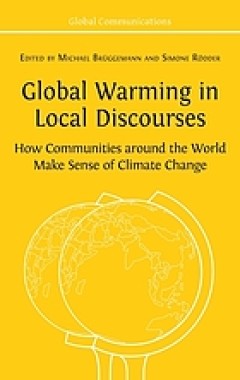
Global warming in local discourses : how communities around the world
Global news on anthropogenic climate change is shaped by international politics, scientific reports, and voices from transnational protest movements. This timely volume asks how local communities engage with these transnational discourses. The chapters in this volume present a range of compelling case studies drawn from a broad cross-section of local communities around the world, reflecting div…
- Edition
- -
- ISBN/ISSN
- 9781800641259
- Collation
- xi, 270 p. : ill. ; 24 cm
- Series Title
- -
- Call Number
- 363.73874 BRÜ g
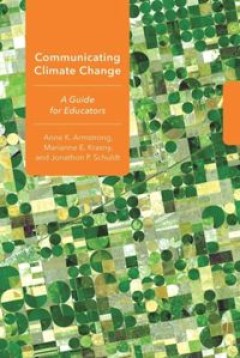
Communicating climate change : a guide for educators
Environmental educators face a formidable challenge when they approach climate change due to the complexity of the science and of the political and cultural contexts in which people live. There is a clear consensus among climate scientists that climate change is already occurring as a result of human activities, but high levels of climate change awareness and growing levels of concern have not …
- Edition
- -
- ISBN/ISSN
- 9781501730801
- Collation
- IX, 131 p.
- Series Title
- Cornell Series in Environmental Education
- Call Number
- 363.73874071073 ARM c
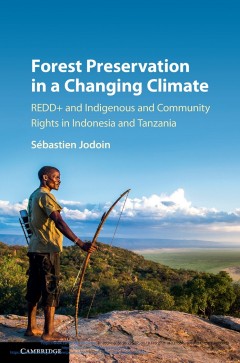
Forest preservation in a changing climate : REDD+ and indigenous and communit…
This book provides a comprehensive socio-legal examination of how global efforts to fight climate change by reducing carbon emissions in the forestry sector (known as REDD+) have affected the rights of indigenous peoples and local communities in developing countries. Grounded in extensive qualitative empirical research conducted globally, the book shows that the transnational legal process for …
- Edition
- -
- ISBN/ISSN
- 9781316986882
- Collation
- xv, 252p. : ill.
- Series Title
- -
- Call Number
- 333.7509598 JOD f
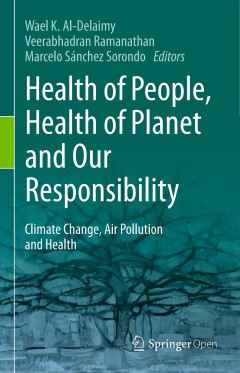
Health of people, health of planet and our responsibility : climate change, a…
This open access book not only describes the challenges of climate disruption, but also presents solutions. The challenges described include air pollution, climate change, extreme weather, and related health impacts that range from heat stress, vector-borne diseases, food and water insecurity and chronic diseases to malnutrition and mental well-being. The influence of humans on climate chang…
- Edition
- -
- ISBN/ISSN
- 9783030311254
- Collation
- xxiii, 417p. : ill.
- Series Title
- -
- Call Number
- 363.73874 HEA h
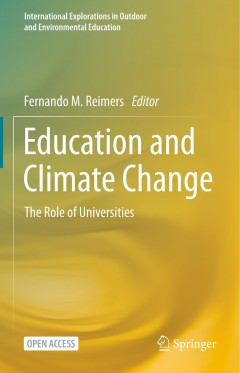
Education and climate change : the role of universities
This open access volume draws on a multidimensional model of educational change, the book reviews the field of climate change education and identifies some of the areas in which past efforts have fallen short in supporting effective pedagogical change at scale. It then formulates an approach to engage university students and faculty in partnering with schools and adult education institutions an…
- Edition
- -
- ISBN/ISSN
- 9783030579272
- Collation
- xiii, 201p. : ill
- Series Title
- -
- Call Number
- 370.115 EDU e
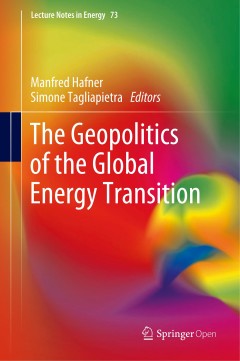
The geopolitics of the global energy transition
The world is currently undergoing an historic energy transition, driven by increasingly stringent decarbonisation policies and rapid advances in low-carbon technologies. The large-scale shift to low-carbon energy is disrupting the global energy system, impacting whole economies, and changing the political dynamics within and between countries. This open access book, written by leading energy…
- Edition
- -
- ISBN/ISSN
- 9783030390662
- Collation
- xxv, 381p. : ill.
- Series Title
- -
- Call Number
- 327 GEO g
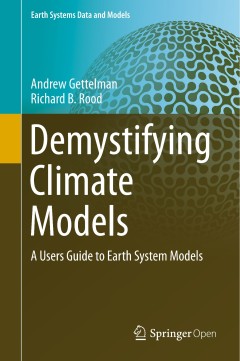
Demystifying climate models : a users guide to earth system models
This book demystifies the models we use to simulate present and future climates, allowing readers to better understand how to use climate model results. In order to predict the future trajectory of the Earth’s climate, climate-system simulation models are necessary. When and how do we trust climate model predictions? The book offers a framework for answering this question. It provides readers…
- Edition
- -
- ISBN/ISSN
- 9783662489598
- Collation
- xvii, 274p. : ill.
- Series Title
- -
- Call Number
- 551.6015118 GET d
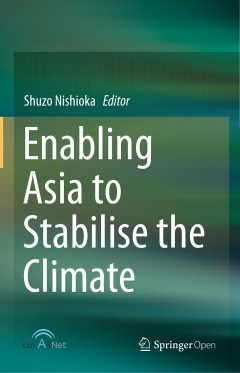
Enabling Asia to stabilise the climate
This book presents good practices in Asia and ASEAN countries for effectively promoting advances in response to climate change, which can help to achieve sustainable development in Asia and around the world. As a proposal, the aim is to influence the discussions at COP 21 by providing a positive agenda with concrete actions from an Asian perspective. The book is divided into three parts. Part 1…
- Edition
- -
- ISBN/ISSN
- 9789812878267
- Collation
- x, 270p. : ill.
- Series Title
- -
- Call Number
- 338.927 ENA e
 Computer Science, Information & General Works
Computer Science, Information & General Works  Philosophy & Psychology
Philosophy & Psychology  Religion
Religion  Social Sciences
Social Sciences  Language
Language  Pure Science
Pure Science  Applied Sciences
Applied Sciences  Art & Recreation
Art & Recreation  Literature
Literature  History & Geography
History & Geography